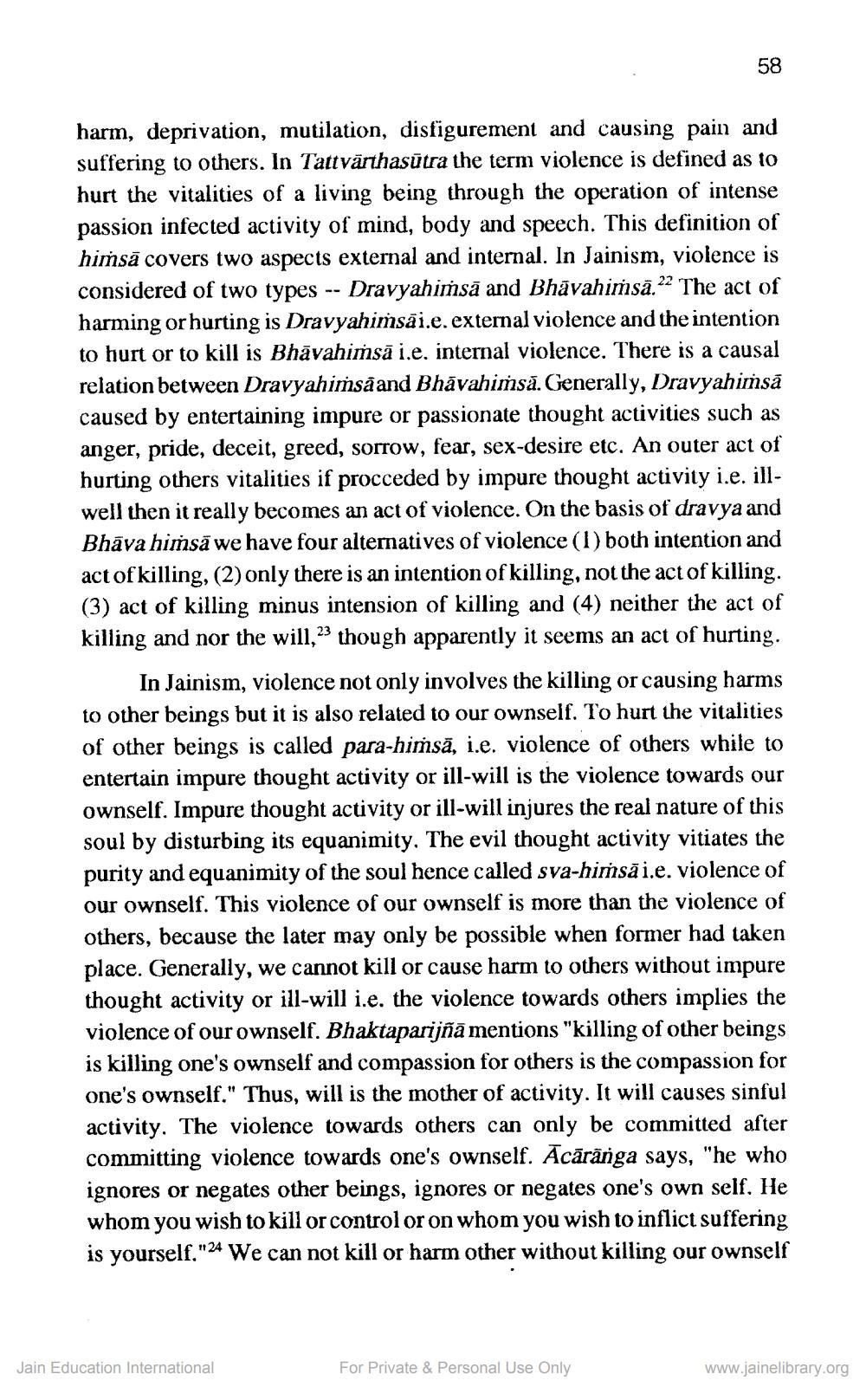________________
58
harm, deprivation, mutilation, disfigurement and causing pain and suffering to others. In Tattvārthasūtra the term violence is defined as to hurt the vitalities of a living being through the operation of intense passion infected activity of mind, body and speech. This definition of hiṁsā covers two aspects external and internal. In Jainism, violence is considered of two types -- Dravyahiṁsā and Bhāvahiṁsā.22 The act of harming or hurting is Dravyahiṁsāi.e. external violence and the intention to hurt or to kill is Bhāvahiṁsā i.e. internal violence. There is a causal relation between Dravyahińsâand Bhāvahiṁsā. Generally, Dravyahiṁsā caused by entertaining impure or passionate thought activities such as anger, pride, deceit, greed, sorrow, fear, sex-desire etc. An outer act of hurting others vitalities if procceded by impure thought activity i.e. illwell then it really becomes an act of violence. On the basis of dravya and Bhāva himsā we have four alternatives of violence (1) both intention and act of killing, (2) only there is an intention of killing, not the act of killing. (3) act of killing minus intension of killing and (4) neither the act of killing and nor the will, 23 though apparently it seems an act of hurting.
In Jainism, violence not only involves the killing or causing harms to other beings but it is also related to our ownself. To hurt the vitalities of other beings is called para-hiṁsā, i.e. violence of others while to entertain impure thought activity or ill-will is the violence towards our ownself. Impure thought activity or ill-will injures the real nature of this soul by disturbing its equanimity. The evil thought activity vitiates the purity and equanimity of the soul hence called sva-hińsăi.e. violence of our ownself. This violence of our ownself is more than the violence of others, because the later may only be possible when former had taken place. Generally, we cannot kill or cause harm to others without impure thought activity or ill-will i.e. the violence towards others implies the violence of our ownself. Bhaktaparijñā mentions "killing of other beings is killing one's ownself and compassion for others is the compassion for one's ownself." Thus, will is the mother of activity. It will causes sinful activity. The violence towards others can only be committed after committing violence towards one's ownself. Ācāränga says, "he who ignores or negates other beings, ignores or negates one's own self. He whom you wish to kill or control or on whom you wish to inflict suffering is yourself,"24 We can not kill or harm other without killing our ownself
Jain Education International
For Private & Personal Use Only
www.jainelibrary.org




